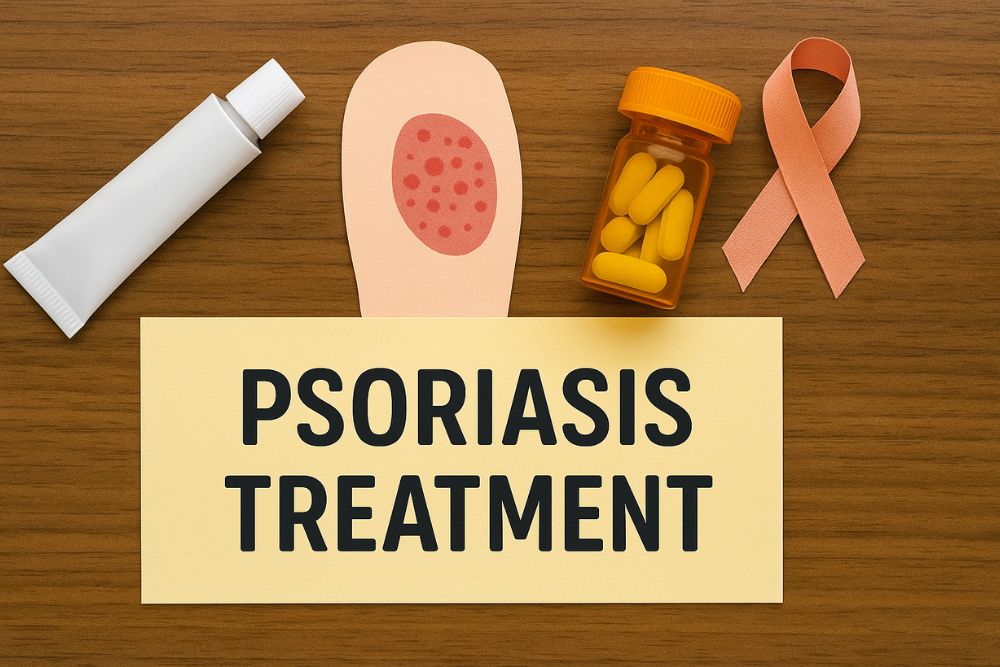Understanding Psoriasis: Effective Treatments and the Importance of Early Detection
Elijah Brooks
2025-12-03
6 min read

Psoriasis is a chronic autoimmune condition that leads to the rapid growth of skin cells, causing red, scaly patches that can be itchy and sometimes painful. Although there is no cure, many effective treatments are available to help manage symptoms and improve quality of life. Recognizing the early signs of psoriasis is crucial for timely intervention and effective management.
Take Control of Your Skin Health, If you’re experiencing symptoms of psoriasis, reach out to a healthcare professional today to discuss treatment options and take the first step towards effective management:
What is Psoriasis?
Psoriasis is characterized by patches of inflamed skin, often covered with silvery scales. It can occur on any part of the body but is most commonly found on the elbows, knees, scalp, and lower back. The severity of psoriasis can vary widely, with some individuals experiencing only mild discomfort while others may face significant challenges.
Early Signs and Symptoms
Recognizing the early signs of psoriasis can lead to more effective treatment outcomes. Common early symptoms include:
- Red patches of skin covered with thick, silvery scales
- Dry, cracked skin that may bleed
- Itching or burning sensations
- Thickened or pitted nails
- Swollen and stiff joints, which may indicate psoriatic arthritis
If you notice these symptoms, it’s important to consult a healthcare professional for evaluation and guidance.
Effective Treatments for Psoriasis
While there is no one-size-fits-all solution for psoriasis, several effective treatment options can help manage the condition:
- Topical Treatments: Many patients start with topical treatments that can include corticosteroids, vitamin D analogs, and retinoids. These are applied directly to the affected areas to reduce inflammation and promote healing.
- Phototherapy: Light therapy, which involves exposure to ultraviolet (UV) light, can help reduce symptoms for many people. This treatment is often administered in a clinical setting and can be a valuable option for moderate to severe cases.
- Systemic Medications: For more severe cases of psoriasis, systemic medications may be prescribed. These include oral medications and biologics, such as Otezla, which target specific parts of the immune system to reduce inflammation and slow down skin cell production.
- Lifestyle Changes: Making certain lifestyle changes can also help manage psoriasis symptoms. Maintaining a healthy weight, managing stress, avoiding alcohol and smoking, and adhering to a balanced diet can contribute positively to overall skin health.
- Alternative Treatments: Some individuals explore alternative therapies, including herbal remedies and acupuncture. While these can be beneficial for some, it's essential to consult with a healthcare provider before starting any new treatment.
Finding the Right Solution
Finding the right treatment for psoriasis can be a personal journey, as what works for one person may not work for another. Here are some tips for navigating treatment options:
- Consult a Dermatologist: A dermatologist specializing in skin conditions can help you understand your options and tailor a treatment plan based on your specific needs.
- Be Open About Your Symptoms: Don’t hesitate to discuss your symptoms in detail with your healthcare provider. This will help them recommend the most effective treatments.
- Stay Informed: Research new treatments and advancements in psoriasis care. Awareness of new therapies can empower you to make informed decisions about your health.
Conclusion
Psoriasis can significantly impact your daily life, but understanding the condition and recognizing its early signs can lead to more effective management. With a variety of treatment options available, it’s possible to find relief and improve your quality of life.
Sources
- National Psoriasis Foundation - Understanding Psoriasis
- American Academy of Dermatology - Psoriasis Treatment Guidelines
- Mayo Clinic - Psoriasis Overview



